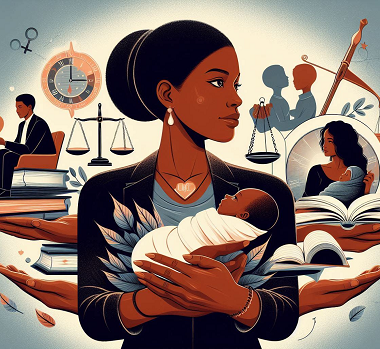Matrimonial law, also known as family law, is the legal framework that governs relationships, rights, and responsibilities within families. Whether you’re planning to tie the knot, facing marital challenges, or contemplating separation, understanding matrimonial law is essential. In this comprehensive guide, we’ll explore the multifaceted aspects of matrimonial law, its impact on individuals and communities, and the evolving landscape of familial rights and obligations.
The Matrimonial Landscape: Key Aspects
1. Marriage: A Legal Bond
Marriage is more than a romantic union; it’s a legal contract. Here are essential aspects of matrimonial law related to marriage:
- Marriage Age and Consent: Each state sets its minimum marriage age. Generally, individuals can marry at 18 without parental consent. Exceptions exist in Nebraska (age 19) and Mississippi (age 21). Consent is crucial, especially for minors.
- Rights and Responsibilities: Marriage grants both spouses new legal rights and obligations. These include property ownership, inheritance, and decision-making authority.
2. Divorce: Untying the Knot
When marriages break down, divorce laws come into play. Here’s what you need to know:
- Grounds for Divorce: Different states recognize various grounds for divorce, such as irreconcilable differences, adultery, cruelty, or abandonment.
- Property Division: Matrimonial law addresses the fair distribution of marital property. Community property states divide assets equally, while equitable distribution states consider factors like contributions and needs.
- Child Custody and Support: Courts determine child custody based on the child’s best interests. Child support ensures financial stability for the child.
3. Child Custody and Guardianship
Child custody decisions are emotionally charged and legally significant:
- Types of Custody: Courts grant legal and physical custody. Legal custody involves decision-making authority, while physical custody determines where the child lives.
- Joint Custody: Shared custody arrangements aim to maintain both parents’ involvement in the child’s life.
- Guardianship Laws: These laws define the rights and responsibilities of legal guardians over minors. Guardians make decisions related to education, healthcare, and general welfare.
The Human Side of Matrimonial Law
Matrimonial law isn’t just about statutes; it intersects with human emotions, relationships, and well-being:
- Emotional Turbulence: Legal proceedings evoke deep emotions—love, anger, grief. Matrimonial attorneys must navigate these feelings while advocating for their clients.
- Mediation and Counseling: Alternative dispute resolution methods, such as mediation and counseling, help couples find common ground. These approaches prioritize collaboration over confrontation.
- Gender Equality: Modern matrimonial law strives for gender equality. It challenges traditional norms and empowers women, recognizing their rights as equal partners.
Conclusion: Love, Law, and Lifelong Commitment
Matrimonial law isn’t just about legal statutes; it’s about hearts intertwining. As couples pledge their love, they also embrace their legal responsibilities. Whether it’s “I do” or “I don’t,” matrimonial law shapes lives.
Delving Deeper: A Comprehensive Look at Matrimonial Law
Love, commitment, and happily ever after – these are the dreams woven into the fabric of marriage. Yet, beneath the romantic veneer lies a legal foundation: matrimonial law. This intricate web of statutes and precedents governs the formation, operation, and dissolution of marriages, impacting individuals, families, and communities alike. Let’s embark on a deeper exploration of this multifaceted legal landscape.
The Bedrock of Matrimony: Marriage and its Legal Implications
Marriage transcends a mere emotional bond; it’s a legally recognized contract. This contract establishes a framework for rights and responsibilities shared by spouses. Here, we delve into the legalities surrounding marriage:
- The Age of Consent and the Nuances of Exceptions: While 18 is the generally accepted minimum age for marriage nationally, some states like Nebraska (19) and Mississippi (21) have higher thresholds. Involving minors necessitates stricter regulations and parental consent to ensure their well-being.
- A Tapestry of Rights and Obligations: Marriage bestows upon spouses a unique set of legal rights and obligations. These encompass property ownership, inheritance rights, and decision-making authority within the marital unit. For instance, spouses may establish joint bank accounts, inherit from each other’s estates, and share decision-making regarding household matters.
When Fairytales Fade: Navigating the Dissolution of Marriage
Unfortunately, not all marriages stand the test of time. When couples decide to part ways, divorce laws come into play, guiding them through the legal aspects of separation. Here’s a closer look at what unfolds:
- Grounds for Divorce: A Spectrum of Reasons: Different states acknowledge various grounds for divorce. Some common justifications include irreconcilable differences – a concept acknowledging the breakdown of the marital bond – adultery, cruelty, and abandonment. Each ground necessitates specific evidence and legal procedures.
- Fair Division of Assets: The Balancing Act of Property Distribution: Matrimonial law addresses the distribution of marital property accumulated during the marriage. Community property states, like California, generally divide assets equally. Equitable distribution states, like New York, consider factors like each spouse’s contribution to the marital estate and their current needs, ensuring a fair outcome.
- The Heart of the Matter: Child Custody and Support: For couples with children, child custody arrangements and financial support are paramount concerns. Courts determine child custody based on the “best interests of the child” principle, considering factors like the child’s age, emotional needs, and living conditions. Child support ensures the financial well-being of the child, with the non-custodial parent contributing towards expenses like housing, food, and education.
Beyond Legalities: The Emotional Landscape of Matrimonial Law
The human element is an undeniable aspect of matrimonial law. Legal proceedings surrounding marriage, divorce, and child custody can evoke a rollercoaster of emotions – love, anger, grief, and uncertainty. Here’s how emotions intertwine with legal processes:
- The Emotional Toll of Legal Battles: Matrimonial attorneys play a crucial role in navigating these emotional complexities while advocating for their clients’ legal rights and best interests. They must possess not only legal expertise but also sensitivity and empathy to navigate the emotional turmoil their clients experience.
- Seeking Resolution Outside the Courtroom: The Power of Mediation and Counseling: Alternative dispute resolution methods, like mediation and counseling, offer couples a chance to reach an amicable solution outside the adversarial court setting. These approaches prioritize communication, collaboration, and compromise, aiming to minimize conflict and foster a sense of control for both parties, especially when children are involved.
- Striving for Gender Equality: A Legal Landscape in Flux: Modern matrimonial law seeks to create a space for gender equality. It challenges traditional gender roles and empowers women, ensuring their rights are recognized and protected as equal partners within marriage and during its dissolution.
Conclusion: A Tapestry Woven with Love, Law, and Lifelong Commitments
Matrimonial law goes beyond mere legal statutes; it’s about the intricate connections between love, legal obligations, and lifelong commitments. As couples embark on their marital journey, they also embrace a legal framework that shapes their lives together. Whether it’s the joyous vows of “I do” or the complexities of navigating separation, matrimonial law plays a significant role, impacting individuals, families, and society as a whole.






